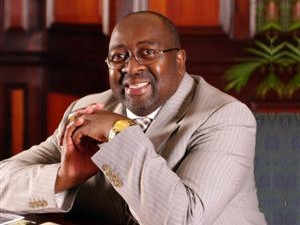
South Africa's split communications departments are set to cost the country as much as R735 million more over the next two years, ITWeb can reveal.
This additional cost to the taxpayer over the next two years, to fund the Department of Communications and Department of Telecommunications and Postal Services (DTPS), has astounded commentators.
The inflated allocation comes at a time when government needs to rein in spending, and plug holes in its revenue.
ITWeb compared last year's budget summaries for the former Department of Communications (DOC) and Government Communication and Information System (GCIS) with this year's summaries for the new DOC and DTPS, as disclosed during Budget 2015.
After president Jacob Zuma's May decision to split the departments, the DTPS portfolio includes the State IT Agency and Sentech, which have their own budgets, while the DOC has merged with the GCIS to become SA's so-called marketing department.
Comparing projected spending between last year's budget - for the DOC and GCIS - for the 2015/16 year, with the figures unveiled yesterday, the split ministries will cost SA R375.9 million more this year. This figure will drop to R359.2 million next year. In total, this is an additional R735 million over the next two years.
Polar opposite
The increased communications department spending is contrary to government's need to be more cautious with its cash, note analysts. Yesterday, finance minister Nhlanhla Nene said during Budget 2015: "Today's budget is constrained by the need to consolidate our public finances, in the context of slower growth and rising debt." He noted measures were being taken to make sure government spent on priority items that would lead to value-creation.
As part of his fiscal measures, Nene raised personal income taxes, increased the fuel levy and added a demand-side surcharge to the cost of electricity.
Ovum analyst Richard Hurst questions what value South Africans are getting out of the extra cost of funding two departments, arguing there is no additional benefit despite the inflated cost. He says government spending has become "like a runaway train".
Marian Shinn, the Democratic Alliance's (DA's) shadow minister for telecommunications and postal services, says the inflated spending "is shocking; that's absolutely bloody shocking". She says there should not be extraneous ministries at a time when SA needs to tighten its belt, as the country cannot afford the expense.
"We need to tighten our focus on critical issues; it's a huge waste of money for a little return."
World Wide Worx MD Arthur Goldstuck adds: "It is quite apparent that, despite the bloating of the ministries, we seem to get less and less delivery in terms of ICT." Hurst adds several key projects, such as digital migration and spectrum allocation, have been "bogged down" and are not getting anywhere.
Gavin Davis, the DA's shadow communications minister, says the additional spend strengthens his call to disband the DOC because it is not needed.
How 2014's budget grows in 2015:
2014 budget: | 2014/15 | 2015/16 | 2016/17 |
DOC | R1 593.4m | R1 887.5m | R2 0744m |
GCIS | R413.1m | R430.8m | R456.4m |
Total | R2 006.5m | R2 318.3m | R2 531.2m |
2015 budget: | |||
DTPS | R1 413.3m | R1 545.7m | |
DOC | R1 280.9m | R1 344.7m | |
Total | R2 694.2 | R2890.4 | |
Additional cost | R375.9m | R359.2m | |
Total extra cost | R735.1m |
Share